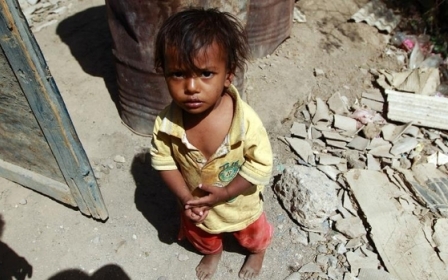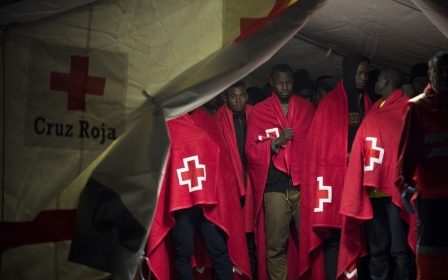US asks nations to provide more traveller data or face sanctions

The US State Department will require all nations to provide extensive data to help Washington vet visa applicants and determine whether a traveler poses a terrorist threat, according to a cable obtained by Reuters.
Countries that fail to comply with the new protocols or take steps to do so within 50 days could face travel sanctions.
The cable, sent to all US diplomatic posts on Wednesday, is a summary of a worldwide review of vetting procedures that was required under President Donald Trump’s revised 6 March executive order that temporarily banned US travel by most citizens from six predominantly Muslim countries.
The memo lays out a series of standards the United States will require of other countries, including that they issue, or have active plans to issue, electronic passports and regularly report lost and stolen passports to INTERPOL.
It also directs nations to provide "any other identity information" requested by Washington for US visa applicants, including biometric or biographic details.
Biometric data includes a facial image; biographic data refers to name, date of birth and address.
The cable sets out requirements for countries to provide data on individuals the state knows or suspects are terrorists as well as criminal record information.
Further, countries are asked not to block the transfer of information about US-bound travelers to the US government and not to designate people for travel watchlists based solely on their political or religious beliefs.
Privacy concerns
"This is the first time that the US Government is setting standards for the information that is required from all countries specifically in support of immigration and traveler vetting," the cable said.
The new requirements are the latest in a series of steps the Trump administration says it is taking to better protect the United States from terrorist attacks.
However, former officials said much of the information sought is routinely shared between countries, including examples of passports and additional details about particular travelers that may present security concerns.
Some US allies may worry about privacy protections if Washington is seen as seeking information beyond what is already shared, said John Sandweg, a former senior Homeland Security Department official now with the firm Frontier Solutions.
"I don’t think you can ignore the political aspects of the unpopularity of the current administration. That puts political pressure to stand up to the administration," he said.
The cable lays out risk factors the US government will consider when evaluating a country. Some of these are controversial and could be difficult for countries to prove to US satisfaction, including ensuring "that they are not and do not have the potential to become a terrorist safe haven".
Banning 'categories' of people
Countries are also expected to agree to take back citizens ordered removed from the United States.
If they do not provide the information requested, or come up with an adequate plan to do so, countries may end up on a list to be submitted to Trump for possible sanction, including barring "categories" of their citizens from entering the US.
The real worries for countries may not come until the results of this review are known, said Leon Rodriguez, former director of US Citizenship and Immigration Services.
"Once they start making decisions, I think that is where there is going to be a lot of anxiety," he said, adding that delays in visa processing for nations that do not pose much of a threat could start to hurt "ordinary business and personal travel".
The cable requires countries to act quickly, but stressed that the US would work with foreign nations to assess if they meet the standards and, if not, to come up with plans to help them do so.
The cable asks that US diplomats "underscore that while it is not our goal to impose a ban on immigration benefits, including visas, for citizens of any country, these standards are designed to mitigate risk, and failure to make progress could lead to security measures by the USG, including a presidential proclamation that would prohibit the entry of certain categories of foreign nationals of non-compliant countries".
The cable says the US government has made a preliminary determination that some countries do not meet the new standards and that others are "at risk" of not meeting them. It does not name these, listing them in a separate, classified cable.
The State Department declined to comment on the cable, saying it would not discuss internal communications.
"The US government’s national security screening and vetting procedures for visitors are constantly reviewed and refined to improve security and more effectively identify individuals who could pose a threat to the United States," said a US State Department official on condition of anonymity.
Middle East Eye propose une couverture et une analyse indépendantes et incomparables du Moyen-Orient, de l’Afrique du Nord et d’autres régions du monde. Pour en savoir plus sur la reprise de ce contenu et les frais qui s’appliquent, veuillez remplir ce formulaire [en anglais]. Pour en savoir plus sur MEE, cliquez ici [en anglais].




